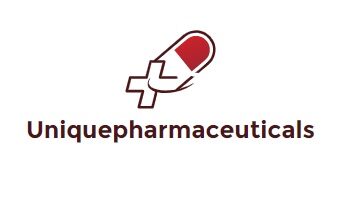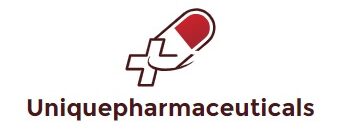Cardiomyopathy is a basic term for illness of the heart muscle, where the walls of the heart chambers have actually ended up being extended, thickened or stiff. This impacts the heart’s capability to pump blood around the body.
Table of Contents
What is Cardiomyopathy
The irregular heart muscle seen in cardiomyopathy is not brought on by obstructed arteries in the heart (coronary artery illness), hypertension (high blood pressure), illness of the heart valves (valvular illness) or genetic heart illness. Most kinds of cardiomyopathy are acquired and are seen in kids and more youthful individuals.
Dilated Cardiomyopathy
In dilated cardiomyopathy the muscle walls of the heart end up being extended and thin, so they can not squeeze (agreement) effectively to pump blood around the body.
How major is it?
If you have actually dilated cardiomyopathy, you’re at higher threat of cardiac arrest, where the heart stops working to pump sufficient blood around the body at the ideal pressure.
Heart failure usually triggers shortness of breath, severe exhaustion and ankle swelling. Learn more about the signs of cardiac arrest. There’s likewise a threat of heart valve issues, an irregular heart beat and embolism. You’ll require to have routine consultations with a GP so the condition can be kept track of.
Who’s impacted?
Dilated cardiomyopathy can impact both kids and grownups.
The following can all contribute in the condition:
- acquiring an altered (altered) gene that makes you more susceptible to the condition
- a hidden medical condition
- unrestrained hypertension
- an unhealthy way of life, such as an absence of minerals and vitamins in your diet plan, drinking excessive alcohol and utilizing leisure drugs
- a viral infection that triggers swelling of the heart muscle
- a heart valve issue
- an illness of the tissues or capillary — such as granulomatosis with polyangiitis (GPA), sarcoidosis, amyloidosis, lupus, polyarteritis nodosa, vasculitis or muscular dystrophy
- pregnancy — cardiomyopathy can often establish as a problem of pregnancy
But for many individuals, the cause is unidentified.
Hypertrophic Cardiomyopathy
In hypertrophic cardiomyopathy, the heart muscle cells increase the size of and the walls of the heart chambers thicken. The heart chambers are minimized in size so they can not hold much blood, and the walls can not unwind effectively and might stiffen. Also, the circulation of blood through the heart might be blocked.
How major is it?
In most cases, hypertrophic cardiomyopathy will not have an effect on life. Some individuals do not have any signs and do not require treatment. But that does not suggest the condition can not be major. Hypertrophic cardiomyopathy is the most typical reason for abrupt unforeseen death in youth and in young professional athletes.
The primary heart chambers can end up being stiff, causing back press on the smaller sized gathering chambers. This can often intensify the signs of cardiac arrest and result in irregular heart rhythms (atrial fibrillation).
Blood circulation from the heart might be minimized or limited (called obstructive hypertrophic cardiomyopathy). Also, the mitral heart valve can end up being leaking, triggering blood to leakage in reverse. Find out more about mitral regurgitation.
You’ll likewise be at higher threat of establishing a heart infection (endocarditis). These heart modifications can trigger lightheadedness, chest discomfort, shortness of breath and momentary loss of awareness. If you have extreme hypertrophic cardiomyopathy, you’ll require to see your medical professional frequently so your condition can be kept track of. Your medical professional will recommend about the level and quantity of workout you can do and suggest way of life modifications you can make.
Who’s impacted?
Hypertrophic cardiomyopathy is believed to impact 1 in 500 individuals in the UK. Most individuals acquire the illness from their moms and dads.
Restrictive Cardiomyopathy
Restrictive cardiomyopathy is uncommon. It’s usually identified in kids, although it can establish at any age. The walls of the primary heart chambers end up being stiff and stiff and can not unwind effectively after contracting. This indicates the heart can not fill effectively with blood.
It leads to minimized blood circulation from the heart and can result in signs of cardiac arrest, such as shortness of breath, exhaustion and ankle swelling, along with heart rhythm issues. In numerous cases the cause is unidentified, although often the condition can be acquired.
Arrhythmogenic Right Ventricular Cardiomyopathy
In arrhythmogenic ideal ventricular cardiomyopathy (ARVC), the proteins that typically hold the heart muscle cells together are irregular. Muscle cells can pass away and the dead muscle tissue is changed with fatty and fibrous scar tissue.
The walls of the primary heart chambers end up being thin and extended and can not pump blood around the body effectively. People with ARVC typically have heart rhythm issues. Reduced blood circulation from the heart can likewise result in signs of cardiac arrest.
ARVC is an acquired condition brought on by a modification (anomaly) in several genes. It can impact teens or young people and has actually been the factor for some unexpected unusual deaths in young professional athletes.
There’s increasing proof that extended, exhausting workout makes the signs of ARVC even worse. It’s essential that individuals with or at threat of ARVC discuss this in information with their heart professional (cardiologist).
Diagnosing cardiomyopathy
Some cases of cardiomyopathy can be identified after different heart scans and tests, such as:
- electrocardiogram (ECG)
- echocardiogram
- MRI scan
- heart rhythm screen (24 or 48-hour ECG screen)
- workout tests
- an in-depth ancestral tree drawn by experts might be needed for the medical diagnosis of a cardiomyopathy
If you have actually been identified with an acquired kind of cardiomyopathy, you might be recommended to have a hereditary test to determine the defective gene (anomaly) that triggered this. Your loved ones can then be checked for the very same anomaly and, if they have it, their condition can be kept track of and handled early.
Treating Cardiomyopathy
There’s typically no treatment for cardiomyopathy, however the treatments can be efficient at managing signs and avoiding problems. Some kinds of cardiomyopathy have particular treatments and early medical diagnosis is extremely essential.
Not everybody with cardiomyopathy will require treatment. Some individuals just have a moderate type of the condition they can manage after making a couple of way of life modifications.
Lifestyle Changes
Whether the cause of cardiomyopathy is hereditary or not, it must normally assist to:
- consume a healthy diet plan and do mild workout
- stopped smoking cigarettes ( if you smoke)
- slim down ( if you’re obese)
- prevent or decrease your consumption of alcohol
- get plenty of sleep ( along with detect and deal with any underlying sleep apnoea)
- handle tension
- ensure any underlying condition, such as diabetes, is well managed
Medicines
Medicines might be required to manage high blood pressure, fix an irregular heart rhythm, eliminate excess fluid or avoid embolism.
Find out more about:
- treatments for hypertension
- beta-blockers to deal with an irregular heart beat or cardiac arrest
- diuretics — a kind of treatment for hypertension to eliminate excess fluid from your body, if that is triggering swelling
- anticoagulants such as warfarin to avoid embolism
- medications to deal with cardiac arrest
Hospital Procedures
In some individuals with obstructive hypertrophic cardiomyopathy, the wall dividing the left and ideal side of the heart (septum) is thickened and bulges into the primary heart chamber. They might require to have either:
- an injection of alcohol into their heart — this is to decrease part of the muscle in the septum
- a septal myectomy — heart surgical treatment to eliminate part of the thickened septum ( the mitral valve might be fixed at the very same time, if essential)
Those with heart rhythm issues might require to have arrhythmia ablation. This treatment thoroughly modifies the infected heart tissue that triggers the heart rhythm issues.
Or they might have a gadget implanted, such as:
- a pacemaker to manage the heart rate
- an implantable cardioverter defibrillator (ICD) to avoid a deadly irregular heart rhythm
Find out more about having actually a pacemaker implanted. Find out more about implantable cardioverter defibrillators from theBritish Heart Foundation As a last hope, a heart transplant might be essential.
Broken Heart Syndrome
Some individuals who experience considerable psychological or physical tension, such as bereavement or significant surgical treatment, go on to experience a momentary heart issue.
The heart muscle ends up being unexpectedly compromised or “shocked”, triggering the left ventricle (among the heart’s primary chambers) to alter shape. It might be brought on by a rise of hormonal agents, especially adrenaline, throughout a duration of tension.
The primary signs are chest discomfort and shortness of breath, comparable to those of a cardiac arrest. Always call 999 if you or another person experiences these. The condition — recognized clinically as Takotsubo cardiomyopathy, or intense tension cardiomyopathy — is more typical in ladies. It’s momentary and reversible. It’s uncommon for it to occur once again.

